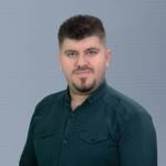ERBIL, Kurdistan Region – Taekwondo is an art of killing, but in Erbil it has become a vehicle for peace between Kurdistan and Korea.
Choi Kwang-Jin, the Consul General of Republic of Korea to Erbil, has opened a state-of-the-art Taekwondo hall in Erbil. The brand new hall in Lawan is comprised of three sections where more than 30 trainees are taught the latest and most cutting edge techniques of Taekwondo.
Omed Gardi, the manager of the hall, spoke about the role of South Korea Consulate in opening several halls for Taekwondo trainees. “The Korean army has been very cooperative since 2003 to spread Taekwondo in Kurdistan Region.”
South Korea has contributed to Kurdistan Region’s sectors of sport, education and cultural affairs since 2003. The South Korean Zaytun Division built six Taekwondo halls in Kurdistan Region between 2004 and 2008, and today there are more than 30 Taekwondo halls in Erbil.
Taekwondo is also a part of Erbil’s annual Korean culture festival, an increasingly popular event which features demonstrations by Erbil Taekwondo teams in between K-pop singing and dancing performances.
Consul General Choi Kwang-Jin said that he was surprised about the number of people who want to learn Taekwondo. “That’s why I decided to have some kind of competition for the Consul General cup in the Kurdistan Region for next year, so I am negotiating with my headquarters to have these kinds of competition,” he told Rudaw.
Dana Muhammad, head of the Erbil Taekwondo team, says they will promote the sport and spread it everywhere. He says, “We are working to open more halls. Our vision is to have Taekwondo everywhere in all the neighborhoods, districts and sub-districts around Erbil.”
The Kurdistan Taekwondo Federation was established in 1986 and now has more than 1,000 active members.
Reporting by Payam Sarbast









Comments
Rudaw moderates all comments submitted on our website. We welcome comments which are relevant to the article and encourage further discussion about the issues that matter to you. We also welcome constructive criticism about Rudaw.
To be approved for publication, however, your comments must meet our community guidelines.
We will not tolerate the following: profanity, threats, personal attacks, vulgarity, abuse (such as sexism, racism, homophobia or xenophobia), or commercial or personal promotion.
Comments that do not meet our guidelines will be rejected. Comments are not edited – they are either approved or rejected.
Post a comment